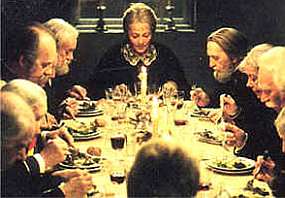In this fourth installment of the series “Being the Body,” we’ll look at the major conceit of most of us in the Western Church. I believe this fallacy prevents us from becoming the real community of Jesus Christ on Earth. If we can get over this lie we’ve believed, great things will happen in our midst.
The Scriptures say this:
The earth is the LORD’s and the fullness thereof, the world and those who dwell therein….
—Psalms 24:1 ESV
[King David praising God before the assembly of Israel:] “But who am I, and what is my people, that we should be able thus to offer willingly? For all things come from you, and of your own have we given you….”
—1 Chronicles 29:14 ESV
“The silver is mine, and the gold is mine,” declares the LORD of hosts.
—Haggai 2:8 ESV
“Behold, all souls are mine; the soul of the father as well as the soul of the son is mine….”
—Ezekiel 18:4a ESV
“For none of us lives to himself, and none of us dies to himself. If we live, we live to the Lord, and if we die, we die to the Lord. So then, whether we live or whether we die, we are the Lord’s.
—Romans 14:7-8 ESV
“You are not your own, for you were bought with a price…..”
—1 Corinthians 6:19b-20a ESV
Here’s the short summation: you and I own nothing. We don’t even own ourselves. It’s all the Lord’s.
But do we Evangelicals, so enamored of our supposed political and economic power, truly believe that? The way we live would suggest otherwise. Yet for us to embody the fullness of Christ as His Body, we need to realize an important truth:
#6 – Real community can only come about when we understand that everything God has given us must be in play for others at all times, especially for those within the community of faith.
If we truly believe the Scriptures above are true, then we have no right to ever withhold needful things from others. Sort of explodes our fallacious notion of “mine,” doesn’t it?
If our current church culture is any indication, no lie from hell can outdo our allegiance to “mine.” We may talk about original sin and point to the lies children tell as proof, but a sixteen-month-old child whose first words consist of “mine” is just as convincing a proof of original sin as lying. Unfortunately, though we discourage the lying, we smirk at the grab for what’s mine. “Isn’t that cute, hon? He’s destined to be a corporate raider some day!”
As we know, “mine” knows no boundaries. It doesn’t stop at the expensive items like cars or houses. Our love for what we convince ourselves is ours extends down to the most insignificant things.
The Bible says this:
He who loves money will not be satisfied with money, nor he who loves wealth with his income; this also is vanity. When goods increase, they increase who eat them, and what advantage has their owner but to see them with his eyes? Sweet is the sleep of a laborer, whether he eats little or much, but the full stomach of the rich will not let him sleep.
—Ecclesiastes 5:10-12 ESV
We can’t stop accumulating wealth can we? Fifteen years ago, everything I owned in the world could fit into the back of a Honda Civic Hatchback. If it all got stolen, I wouldn’t miss it.
A self-examination: If you’re reading this and are married, isn’t it amazing how much more stuff you’ve picked up since saying, “I do”? It costs money to insure all that accumulation, too, because we all worry what might happen to it. Not so much that we would lose it, but that once it was all gone, people would treat us differently. We wouldn’t be as affluent. People might actually think we were—God forbid—poor!
How many of us reading this sleep a little less comfortably at night than we did when we owned nothing? That sleep largely suffers for one enormous reason. Few of us, deep down inside, can rest assured that our church communities would draw alongside us should we suffer financial ruin. We fear that our churches are not convinced of the following:
“If your brother becomes poor and cannot maintain himself with you, you shall support him as though he were a stranger and a sojourner, and he shall live with you. Take no interest from him or profit, but fear your God, that your brother may live beside you. You shall not lend him your money at interest, nor give him your food for profit.”
—Leviticus 25:35-37 ESV
God did NOT say that He Himself would rain down food, shelter, or clothing, but that this help should come from the community of faith! The act of true fear of God within a believing community is that we cover the needs of our brothers and sisters.
Just this weekend I heard from yet another brother in dire financial straits. (We’ve never met face-to-face, but I know him from his online writings.)  The broken-record response from his church? “Sorry, we won’t help you.” They have the financial resources, so they could help; they just won’t. They love money more than they love this brother or their own community.
The broken-record response from his church? “Sorry, we won’t help you.” They have the financial resources, so they could help; they just won’t. They love money more than they love this brother or their own community.
I have one word for that: sickening. Are there any churches left that fear the Lord?
We watch faithful brothers and sisters in Christ go through bankruptcies and other financial disasters without lifting a finger to help, then we excoriate them for it. There’s not a person reading this right now who doesn’t have a decent, hard-working family in his or her church enduring financial hell. What are we doing for them? Anything? Or are we blaming them instead, trying to find a reason for their ruin much the same way the Pharisees sought to find a reason for the original blindness of the man Jesus healed?
Do we know that it’s for the glory of God that we help our brothers and sisters in their time of need?
Folks, if the rest of the world around us still wants to cling to “mine,” it means that those of us who understand that it’s all the Lord’s are even harder pressed to pick up their slack. We have to decide that we value Christ more—and subsequently the ones He died to save—than we value material wealth. We must desire to live like this:
And they devoted themselves to the apostles’ teaching and fellowship, to the breaking of bread and the prayers. And awe came upon every soul, and many wonders and signs were being done through the apostles. And all who believed were together and had all things in common. And they were selling their possessions and belongings and distributing the proceeds to all, as any had need. And day by day, attending the temple together and breaking bread in their homes, they received their food with glad and generous hearts, praising God and having favor with all the people. And the Lord added to their number day by day those who were being saved.
—Acts 2:42-47 ESV
If it means we do without a 60″ plasma TV so we have funds to help a family who can’t pay their electric bill, then we do without.
If it means we don’t go out of town on a vacation this year so we can pay the rent of a family hit by unemployment, then we don’t go. (And our children learn a valuable lesson about what is important in God’s eyes.)
If it means that we eat canned soup the rest of the week so we can make a weekly feast for all those in our church who can’t even afford canned soup, then we eat canned soup the rest of the week.
If it means that we have to sell something of “ours” so that a family in our church can keep a roof over their heads, then we sell it.
Because we believe that Jesus Christ is Lord.
Because we believe that He died and rose again to forge a community of saints who will live forever in Paradise.
Because our reward is in Heaven, not in this life.
Because we know that unless we start living that way, we will never see revival in our churches or the kind of Christian community that brings healing, peace, unity, love, and the presence of the Holy Spirit. The kind of community that has the lost taking notice.
Putting what God has given us into play means more than handouts, too. It means we open our homes to others because those houses are God’s. It means we give our time and effort to help others, because we don’t own time and effort, either. It means we don’t hold exclusive rights to our family members, making other families our family, too. When we finally realize that we own nothing, what we can give to others is magnified a thousandfold. And community is built.
We’ve believed the lie of “mine.” But there is no “mine.” It’s all God’s. And His command to us is that we give what He’s given us to those in need, especially those in the community of faith. Because that’s what the Body does, it looks after itself. If the heart is sick, the whole body is sick. All suffer together.
And when we look after each other, all rejoice together, too.
Posts in this series:
 I used to think that had something to do with blatant sin in the missing sheep's life, but now I understand how easy it is to drift away for no other reason than people simply forget that sheep was ever there.
I used to think that had something to do with blatant sin in the missing sheep's life, but now I understand how easy it is to drift away for no other reason than people simply forget that sheep was ever there.
 but entire meals in which the sharing of the bread and wine was the high mark.
but entire meals in which the sharing of the bread and wine was the high mark. The broken-record response from his church? “Sorry, we won’t help you.” They have the financial resources, so they could help; they just won’t. They love money more than they love this brother or their own community.
The broken-record response from his church? “Sorry, we won’t help you.” They have the financial resources, so they could help; they just won’t. They love money more than they love this brother or their own community.